Samsung Galaxy Nexus & Ice Cream Sandwich Review
by Brian Klug & Anand Lal Shimpi on January 18, 2012 1:34 PM ESTOS-Wide OpenGL ES Rendering
Although smartphone and tablets still lag behind the technology we have in modern day PCs by several years, their evolution is a highly accelerated version of what we saw in the PC industry. It took decades to go from the first GUIs to the GPU composited and accelerated UIs we have on the desktop today. Android has made a very similar transition in just three years.
Prior to Honeycomb, the majority of screen drawing in Android was done using its skia libraries. These libraries were almost exclusively CPU based and did very little work on the GPU. Over time Google rewrote key elements of Android to use new OpenGL ES rendering paths instead of skia for screen drawing. We saw the first major transition in Gingerbread where parts of the OS became GPU accelerated, but things like the browser were still being rendered to the screen using skia. Honeycomb was a significant step towards GPU accelerated drawing, and ICS all but completes the transition. The other component is the drawing model, which is completely revamped in 3.x and above.
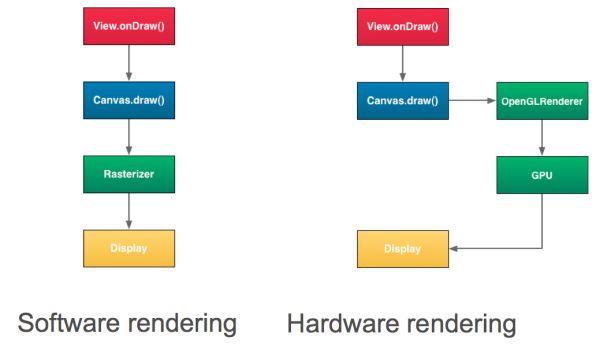
From Romain Guy's Android Accelerated Rendering Google I/O 2011 Presentation
Honeycomb based tablets were significantly smoother than Gingerbread devices but even they showed some UI performance issues depending on what you asked of them. We later found out that this was a Tegra 2 limitation, something that would surely contribute to NVIDIA not being chosen as the lead SoC partner for ICS.
Also from Romain Guy's Android Accelerated Rendering Google I/O 2011 Presentation
With Ice Cream Sandwich, the OS, browser and all first party apps are OpenGL ES accelerated. The result is absolutely noticeable. App launches, scrolling and window transitions are all buttery smooth. Web browsing is unbelievably smooth and easily comparable to iOS and Windows Phone at this point.
Third party apps have to opt-into the OpenGL ES rendering path, which will likely require an update for those apps that haven't already done so. Google also provides the handy option of forcing all apps to use GPU accelerated apps and ignoring the opt-in (hardwareAccelerated="true" from the AndroidManifest.xml file). The obvious downside is not all third party apps will work gracefully with hardware acceleration enabled, though most do right now. The Southwest Airlines app, for example, will crash as soon as you try to check into a flight if you force GPU accelerated drawing, and Speedtest.net shows a blur for its line graph of throughput during the test. Google has outlined the draw operations that are unsupported in 3.x and 4.x already, which thankfully aren't many.
While it would be nice for Google to allow GPU acceleration settings on a per application basis, the truth of the matter is that many of them work just fine. Those that don't work are likely a simple update away from getting on board, otherwise they risk obsolesce as more platforms get ICS in the future.
If the sluggish UI held you back from Android in the past, ICS almost completely addresses the issue. I say almost completely because there are still some minor hiccups and a couple of more reasonably sized problems with the OS' responsiveness.
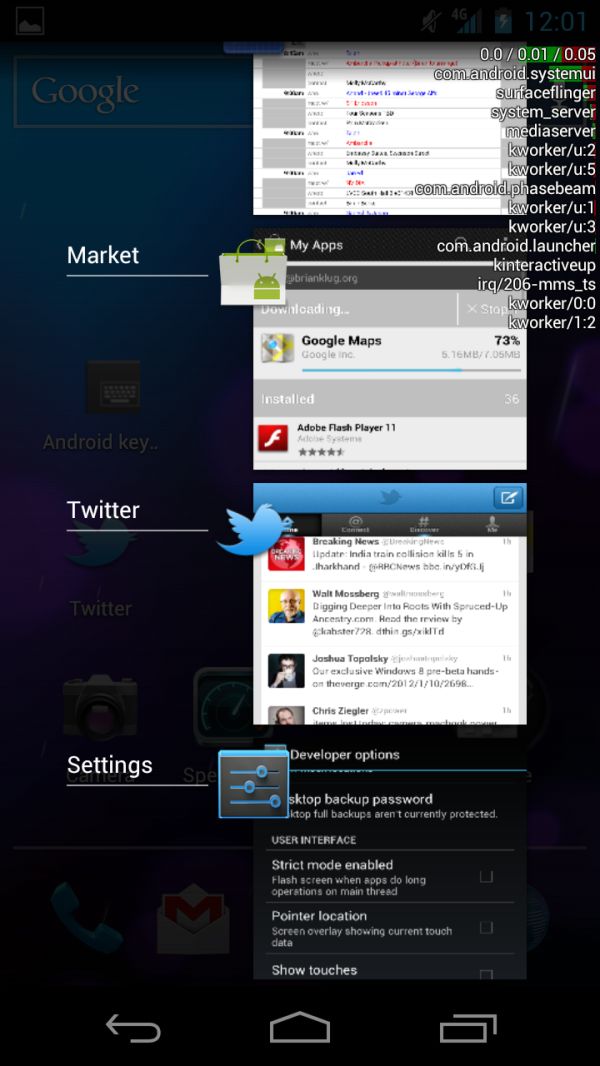
Task Switcher with CPU use overlay (new in ICS) enabled
The biggest issue for me is the delay when operating any of the ICS buttons: back, home or the task switcher. While tapping a folder on any of the home screens results in an instantaneous display of its contents, hitting any of the three ICS buttons just isn't as responsive. There's a noticeable delay between when you hit the home button and when you actually appear back at the home screen. It's a delay that's, at least in my opinion, a bit too long. More frustrating is the delay in bringing up the list of recently used apps. It's less than two seconds but it should be in the milliseconds.
I monitored CPU usage while bringing up the task switcher and saw a small spike in CPU usage (~15%) and an associated increase in clock frequency, but nothing significant enough to lead me to believe we're CPU bound here. If anything I wonder if this is a GPU performance limitation similar to what we saw with Tegra 2 and the app launcher on Honeycomb. Given the incredible resolution of the Galaxy Nexus' display and the fact that we're still dealing with a 307MHz PowerVR SGX 540, it's quite possible that the platform just needs a faster GPU. I'm curious to see how well Tegra 3 will do here.


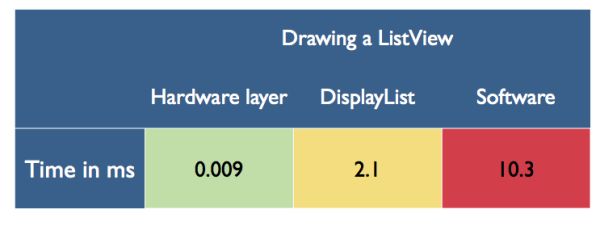
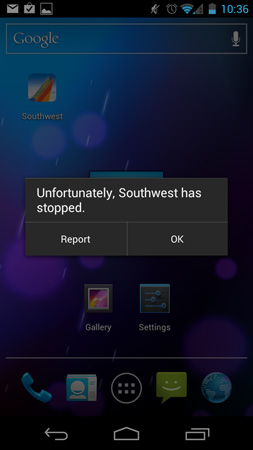
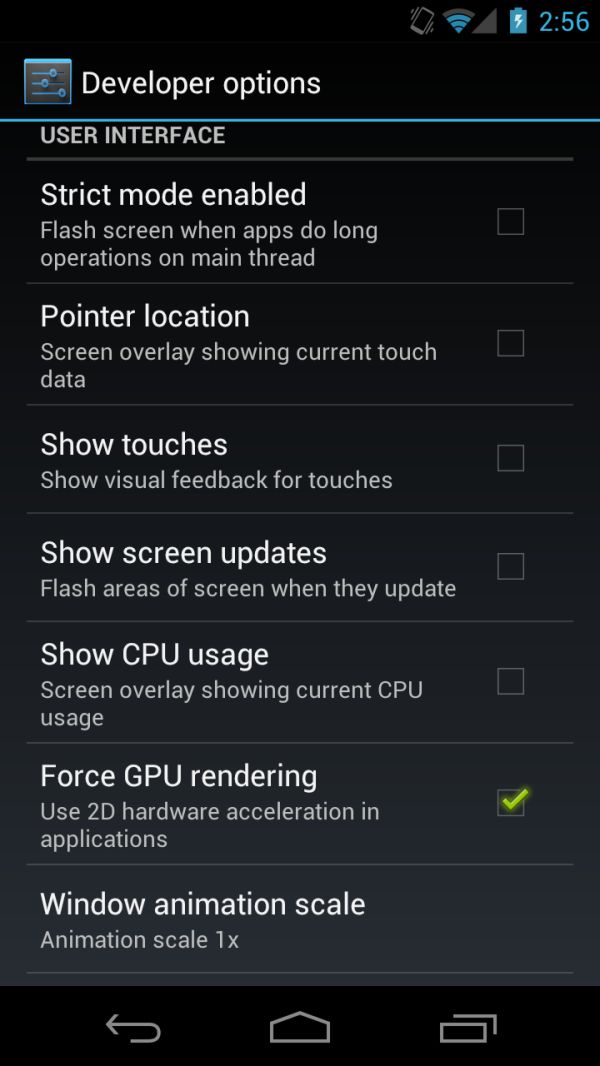








185 Comments
View All Comments
bjacobson - Wednesday, January 18, 2012 - link
I believe most of the readership is willing to wait--it's the price we pay for the most analytical reviews the net has to offer, and I definitely hope AT doesn't take a page from Tom's Hardware's book... That said, this one does seem a bit delayed, poor Anand has too much to do...dwang - Wednesday, January 18, 2012 - link
Any remaining lag issues in ics is due to software and not hardware.4.0.3 has significant performance enhancements that address any remaining lag issues in the browser and buttons.
For example, theverge.com lags pretty badly in 4.0.1/4.0.2, but is buttery smooth in 4.0.3. Check out this youtube video.
http://www.youtube.com/watch?v=IN27yZQWfU0
Either wait for google to push out 4.0.3 to the galaxy nexus or install one of the many custom 4.0.3 roms from xda.
http://forum.xda-developers.com/forumdisplay.php?f...
cgalyon - Wednesday, January 18, 2012 - link
I've noticed popping and static coming from my GNexus when using apps (such as AmbiSciPS) that include extremely low tones (like 1.05Hz). I never had this problem with my Droid X, so I'm wondering if this is a limitation of the GNexus in general or if maybe I'm having bad luck. I don't suppose there's a way you could test the ability of the phone to produce tones across a broad range of frequencies?bjacobson - Wednesday, January 18, 2012 - link
considering 1hz is 6hz below the threshold of human hearing (7hz), 19hz below what most headphones support (20hz), and about 80hz below what perfect-pitch musicians could identify as do, rei, me, fah, so, lah, or ti, I think you're asking a bit much...gorash - Wednesday, January 18, 2012 - link
I hope Android becomes a full-fledged desktop OS pretty soon, and it would be interesting to see how iOS will pan out in a few years.We're ready to say GOODBYE to Windows hegemony.
Zoomer - Thursday, January 19, 2012 - link
No thanks, that would suck badly.sjankis630 - Wednesday, January 18, 2012 - link
I have the Galaxy Nexus and while I love it, I am coming from the Droid Eris, I have noticed several picture heavy sites which cause stuttering while zooming. I was slightly taken aback. I don't care how well my phone does against some other phone in a contest. I do, however, mind when visiting some sites makes it kind of annoying trying to get around.2 particular problem sites for me are : www.theverge.com and www.msnbc.com
Lovely phone though.
dwang - Wednesday, January 18, 2012 - link
wait for 4.0.3 that addresses the browser lag issues.Here is 4.0.3 on theverge.com
http://www.youtube.com/watch?v=IN27yZQWfU0
notext - Wednesday, January 18, 2012 - link
love my nexus even though I dropped it and put a big ass crack on the screen. dropped my iphone many times and it never had a problem. Hopefully it was just a bad hit and not a sign of its design.notext - Wednesday, January 18, 2012 - link
and i will send you my broken glass once I can get a replacement. The closest repair place here in austin said it is unavailabe right now.